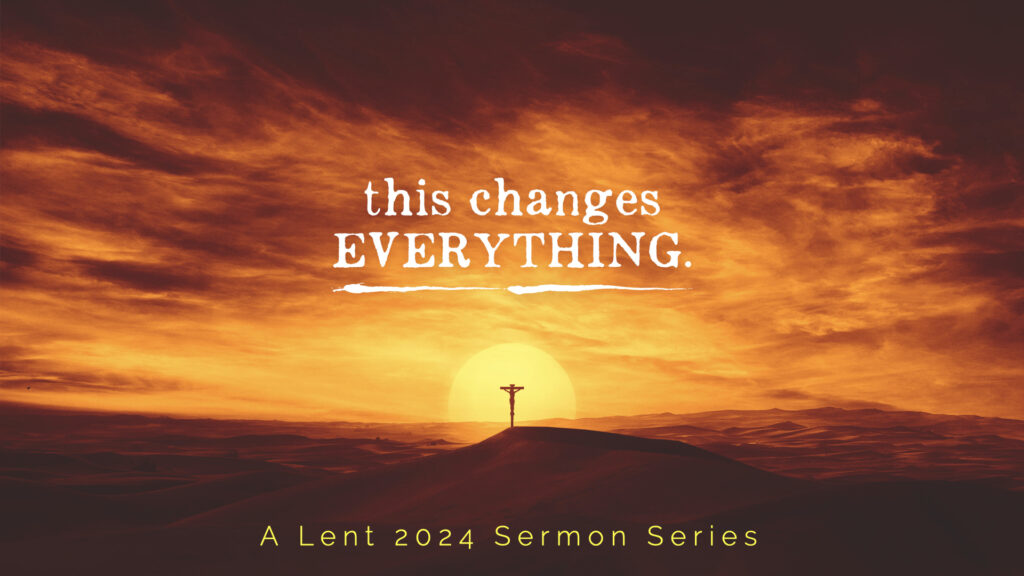For if the dead are not raised, not even Christ has been raised. And if Christ has not been raised, your faith is futile and you are still in your sins. — 1 Corinthians 15:16-17
There are a lot of doctrines that are crucial to our Christian faith. In the EPC, we have a list of them known as “The Essentials of Our Faith.” Those essentials include what we believe about the Trinity — God the Father, God the Son (Jesus Christ), God the Holy Spirit; the problem of our sin and our salvation in Christ; the church; the return of Christ; and the purpose and mission of every Christian. All of those are important doctrines and in many respects define the boundaries of orthodox Christianity. It’s not so much that believing these things make you a Presbyterian, but that Christians throughout the centuries have held these doctrines as essential. But in the paragraph about Jesus Christ is a statement that is, in many respects, more important than any other:
“[Jesus Christ] died on the cross a sacrifice for our sins according to the Scriptures. On the third day He arose bodily from the dead, ascended into heaven, where, at the right hand of the Majesty on High, He now is our High Priest and Mediator.”
That’s it. That’s the entire house of cards. Everything we believe as Christians rises and falls on the death and resurrection of Jesus Christ. As Paul wrote in the passage quoted above, if Christ was not raised from the dead, everything else we believe is meaningless. Conversely, in order to understand why and how Christ was raised from the dead, it’s necessary to believe most everything included in the Essentials of Our Faith. As Thomas Oden writes,
No aspect of Jesus’ ministry was more minutely recorded than his resurrection. Due to the pivotal importance of his resurrection, the evidence for it appears to have been assiduously collected, transmitted, and embedded in the essential proclamation of salvation attested by the earliest Christian communities. The Gospel narratives seem to be saying to us that if we cannot credit the last validating episode of his life, we are not likely to grasp anything else said about him. (The Word of Life, pg 495)
The death and resurrection of Jesus Christ changes everything. It is the confirmation that everything the Old Testament said about Jesus is true; that everything Jesus said about himself is true. It is the means of our sanctification, the way our sins are atoned for, the reason we are freed from the shackles of our sins. It is the promise of our redeemed and restored souls, the hope of our eternal salvation, the guarantee of our future life with Christ. It is the way God chose to restore all of broken creation to what He intended from the very beginning. And it is completely unprecedented in human history, so much so that it is “a stumbling block to Jews and folly to Gentiles” (1 Cor. 1:23).
We’ve heard the “old, old story” so many times that we can forget how radical, revolutionary and profound it really is. That’s why we have the season of Lent in the church calendar. The early church fathers recognized how important it is for believers to spend a significant period of time reflecting on what Jesus accomplished on Easter Sunday. During this season, I invite you to make a habit of reading 1 Corinthians 15 as part of your daily Scripture reading and prayer time. Spend time meditating on and contemplating the wonder of the death and resurrection of Jesus Christ. Allow the depths of the love of God made manifest through His Son Jesus Christ settle deeply in your heart, and share that message of hope and life with those around you. That’s what we have to offer: because He lives, so we live. That changes everything.
But in fact Christ has been raised from the dead, the firstfruits of those who have fallen asleep. For as by a man came death, by a man has come also the resurrection of the dead. For as in Adam all die, so also in Christ shall all be made alive. — 1 Corinthians 15:20-22
Blessings,
Rev. David Garrison

